She’s happier than she’s been in a long time. Paula Bennett, Deputy Prime Minister, Climate Change Minister, Minister of Police, Tourism, Women’s Affairs and State Services, sits at my kitchen table positively brimming with enthusiasm.
Those are not small portfolios. The sheer weight of them would cause many a politician to feel just a little daunted. Not Paula.
“I’ve felt better than ever in the last six months – more healthy, I’m sleeping better,” she confides.
Why is that? Perhaps something to do with the fact that she’s reasonably recently settled into marriage with the love of her life?
“No,” she says, “it’s since I got the new job [the deputy role]. I don’t have to prove myself any more.”
The teen mum and former welfare beneficiary has risen to become one of the most powerful women in the country and those close to her tell her she has nothing left to prove.
“They’ve all said the same thing. The PM, my mentor [she has regular mentoring sessions from an unnamed high-flying businesswoman] and my husband. I don’t have to fight so hard any more.
“After nine years in parliament I have learnt not to sweat the small stuff. I surround myself with smart, capable people. I do the big-picture strategising. People-work is the work I love.”
She relishes leading a team. “I have to be so careful how I use that word ‘leadership’,” she says, giving a fulsome chuckle and rolling her eyes wickedly.
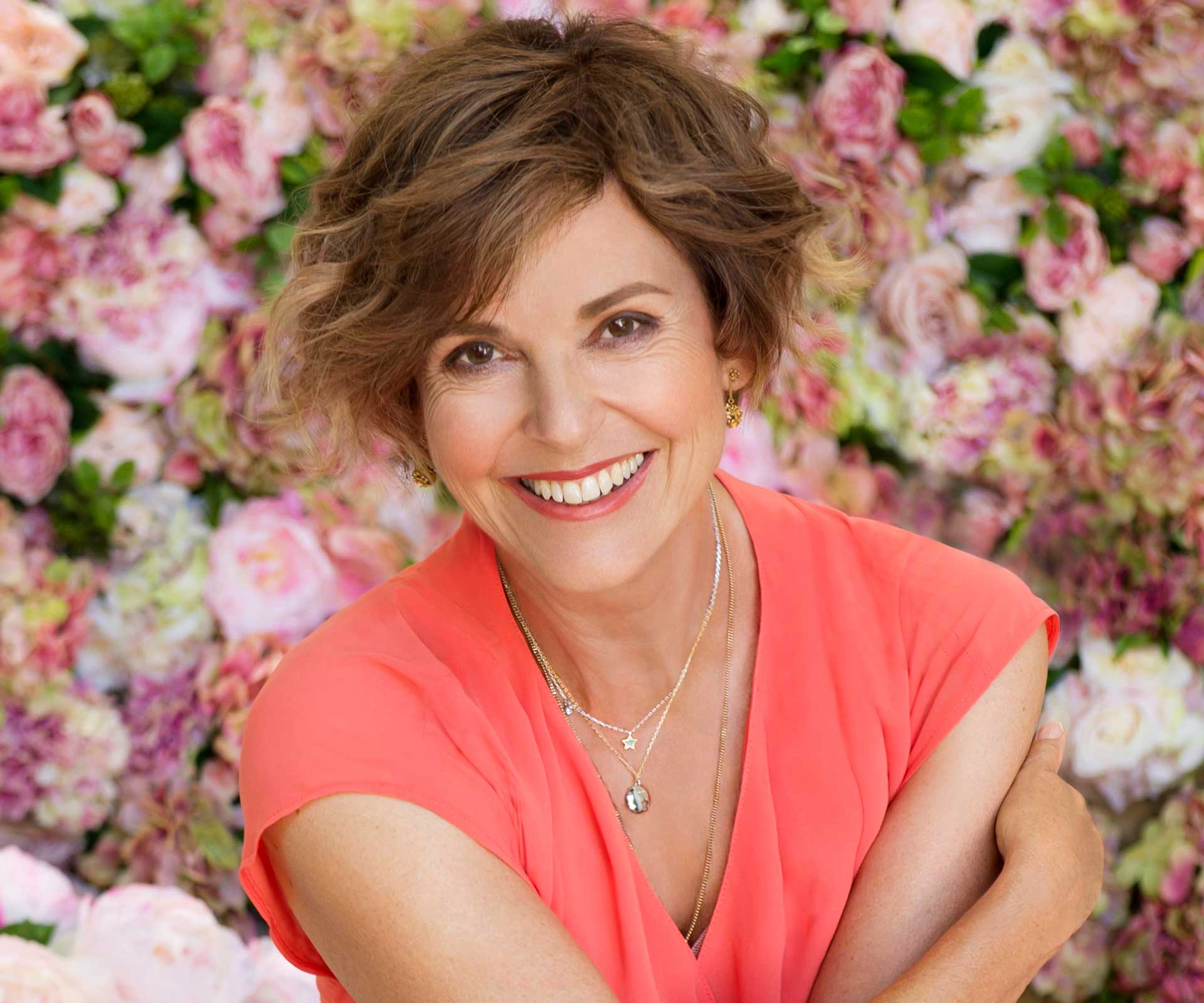
Judy Bailey
Of course, I have to ask her about a tilt at the top job. Would she be keen to lead the country?
“My job as deputy is to let the PM be the best he can be.” It’s a perfectly guarded political reply.
“We’ve had a close working relationship for many years. We don’t argue as much now,” she laughs. “We used to have big debates, massive arguments re the direction we were heading in. For example, work experience versus education. Of course we were both right.”
They’re a tight unit, Paula and Bill. “I know what he’s thinking,” she says simply.
When she took on the role as his deputy, the Prime Minister told her, “Let’s enjoy this; this is an opportunity for both of us.”
“Bill is big on family. We try to care for each other that way. He does occasionally tell me to shut up,” she deadpans, and we both laugh… Paula Bennett is not short of words!
Paula, 48, was the third of three children born in Auckland to Bob and Lee Bennett. She had two older brothers, Stephen and Marc. She was just five when the family made the move to the lakeside village of Kinloch near Taupo. Bob and Lee ran the local store. Paula reckons two words sum up her childhood: freedom and sunshine.
With both parents working, she was free to roam the village, always protected by the family Labrador, visiting elderly neighbours. “The village raised me,” she remembers fondly.
Hers was a gregarious family. There were lots of parties, lots of roast dinners. Her parents were best mates with the local community constable, who was among those in the village who looked out for young Paula, while her older brothers spent their time hunting and fishing.
Paula spent a lot of time with her father’s parents, particularly her grandmother, who was part Tainui. A formidable matriarch, she taught her granddaughter to have the strength of her convictions. To this day, self-doubt is not something Paula struggles with.
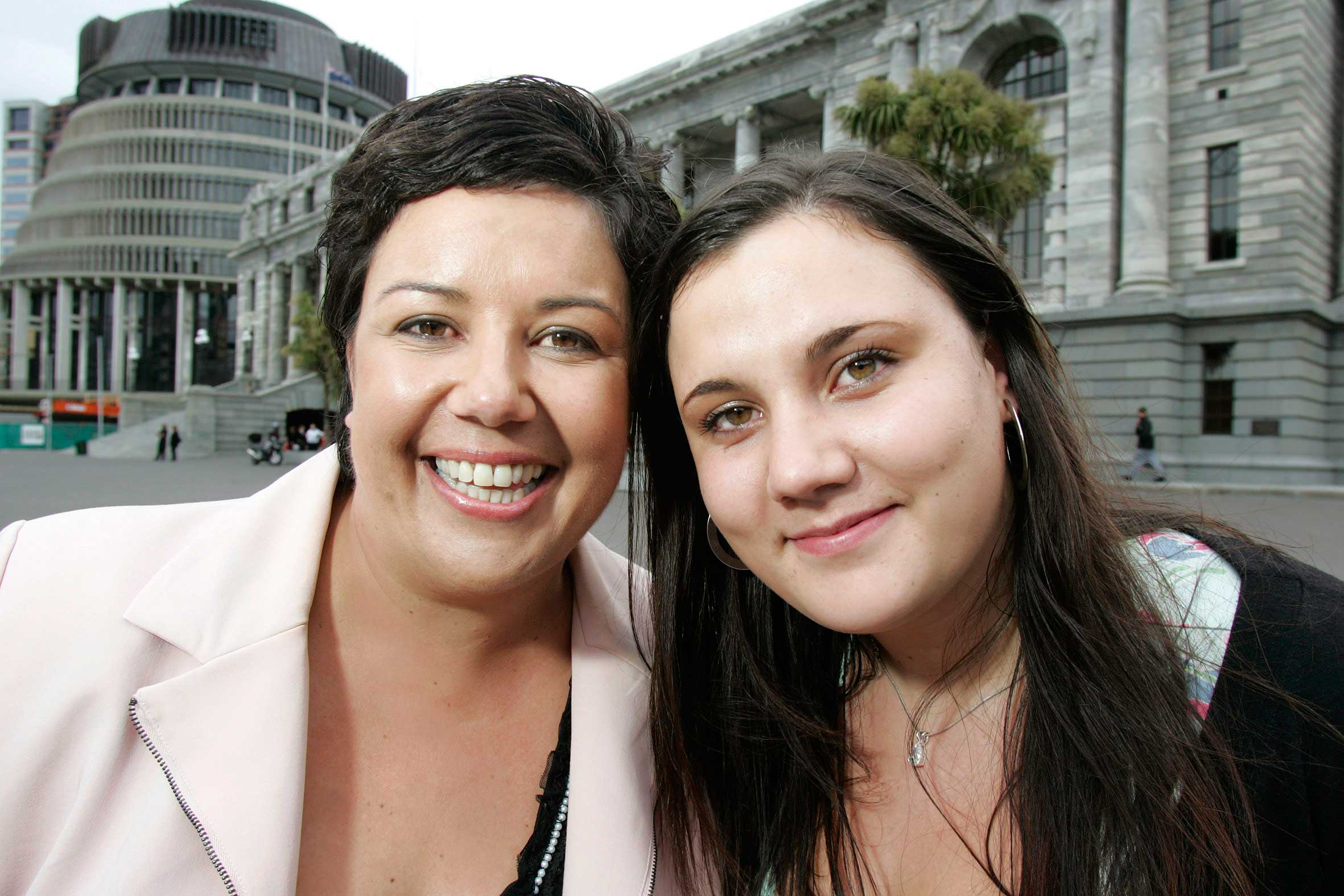
Paula and her daughter Ana at Parliament Buildings.
She is keen to connect with her Tainui heritage, but, like many Maori at that time, her grandmother wanted Paula to embrace the Pakeha world. She worried there were too many negative stereotypes attached to being Maori in 1970s New Zealand.
Her grandparents were well-read, interested and opinionated. They loved argument and discourse and encouraged Paula to have opinions of her own, but always to be able to back those opinions. Her dad, Bob, was equally opinionated.
When Paula was growing up, he was firmly of the notion that girls did women’s work around the house and boys did men’s work. Needless to say, it didn’t sit well with his free-spirited daughter. She remembers at the age of seven feeling indignant about being treated differently. She thought it was unfair, and railed against it.
The Bennetts’ neighbours at Kinloch were National Party royalty. Sir Keith Holyoake had a family farm there and Paula grew up with the former Prime Minister’s grandson,Tim. They were great mates and it was Tim who would take Paula to her first Young Nats meeting in Rotorua.
Paula reckons she was a good student until she turned 14, when she became “lippy”. She argued, answered back, became a truant. Her parents were always being called to school.
“Dad even signed a form giving them permission to beat me… I was appalled,” she remembers. “I was a dysfunctional teen in a functional household… I think I wore them [her parents] out.”
At 16 she left home and school and went flatting with a girlfriend. By 17 she was pregnant. “The father did a runner,” she says matter-of-factly.
She hid the pregnancy. It was seven-and-a-half months before anyone knew. Her daughter, Ana, was born and Paula returned home to be with her parents.
“It was tough for them. Embarrassing, there was lots of judgement. I didn’t have the best reputation. Mum said, ‘I will support you, but I don’t want to raise a baby.’
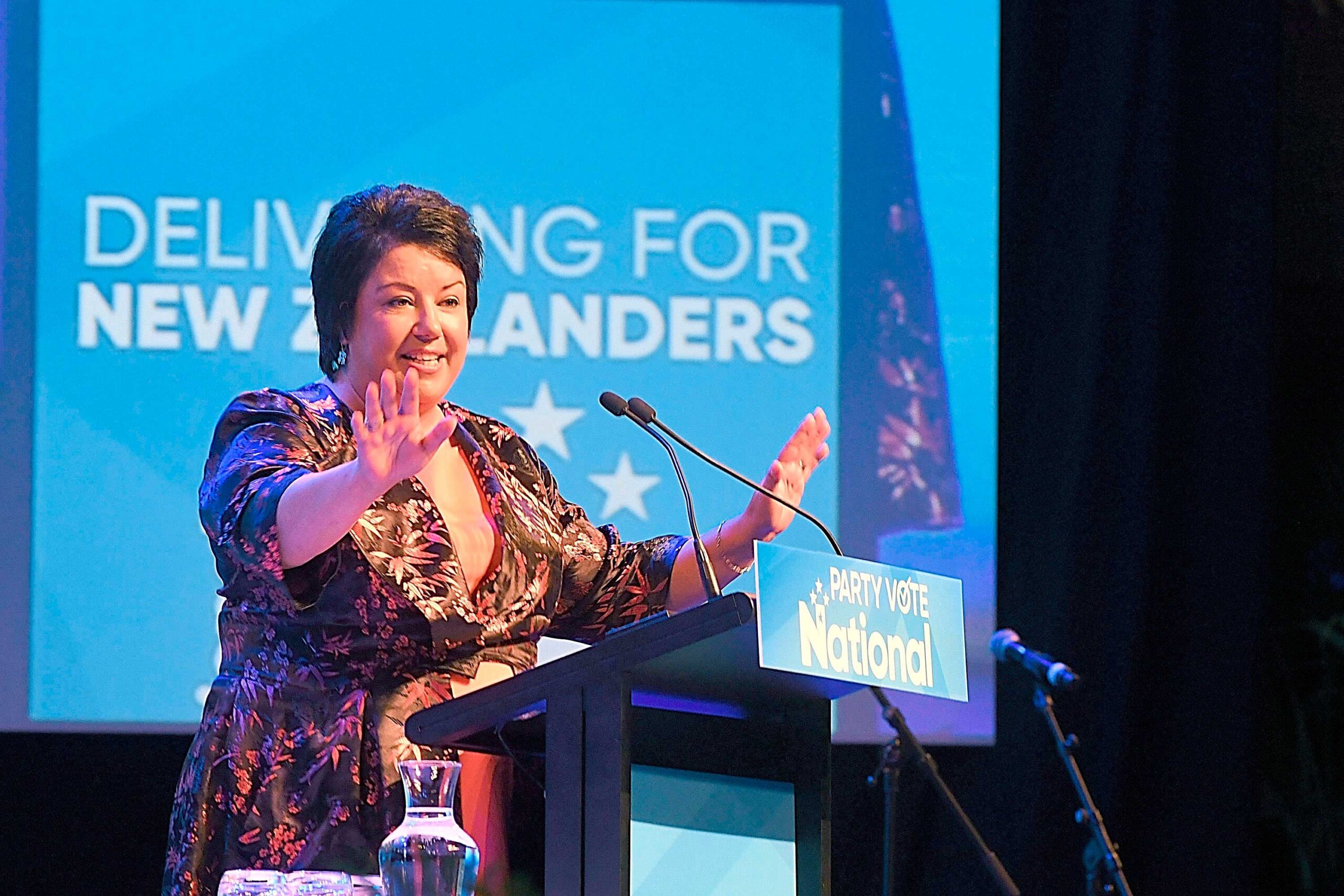
The MP speaking at the National Party’s Annual Conference in 2017.
“I’d been raised with a strong work ethic. It was seen as somehow shameful to go on the benefit if you were capable of looking after yourself.”
So she put Ana into childcare and went to work.
She was waitressing in a truck stop when in walked ruggedly handsome truckie Alan Philps.
“He was sporting a particularly fine mullet in those days,” she says, grinning at the memory.
The two would be together for three years, but then life intervened.
Paula’s brother, Marc, always one of her staunchest supporters, died in a diving accident, and two months later she lost her best friend, Christine. They had grown up together.
“We’d spoken every day since we were 11. We lived at each other’s houses. We were always going to grow old together,” she tells me sadly.
Christine was on a motorbike. She was hit by a truck.
“I went into survival mode. I felt consumed by grief, my own and everyone else’s.” Alan wanted to marry her but Paula wasn’t ready. They went their separate ways and, deciding it was time for a change, she and Ana moved to Auckland.
“It was one of the loneliest times of my life.”
She was working in a rest home and eventually the owner of the rest home said, “We’d promote you, but you don’t have any qualifications – what are you going to do about it?”
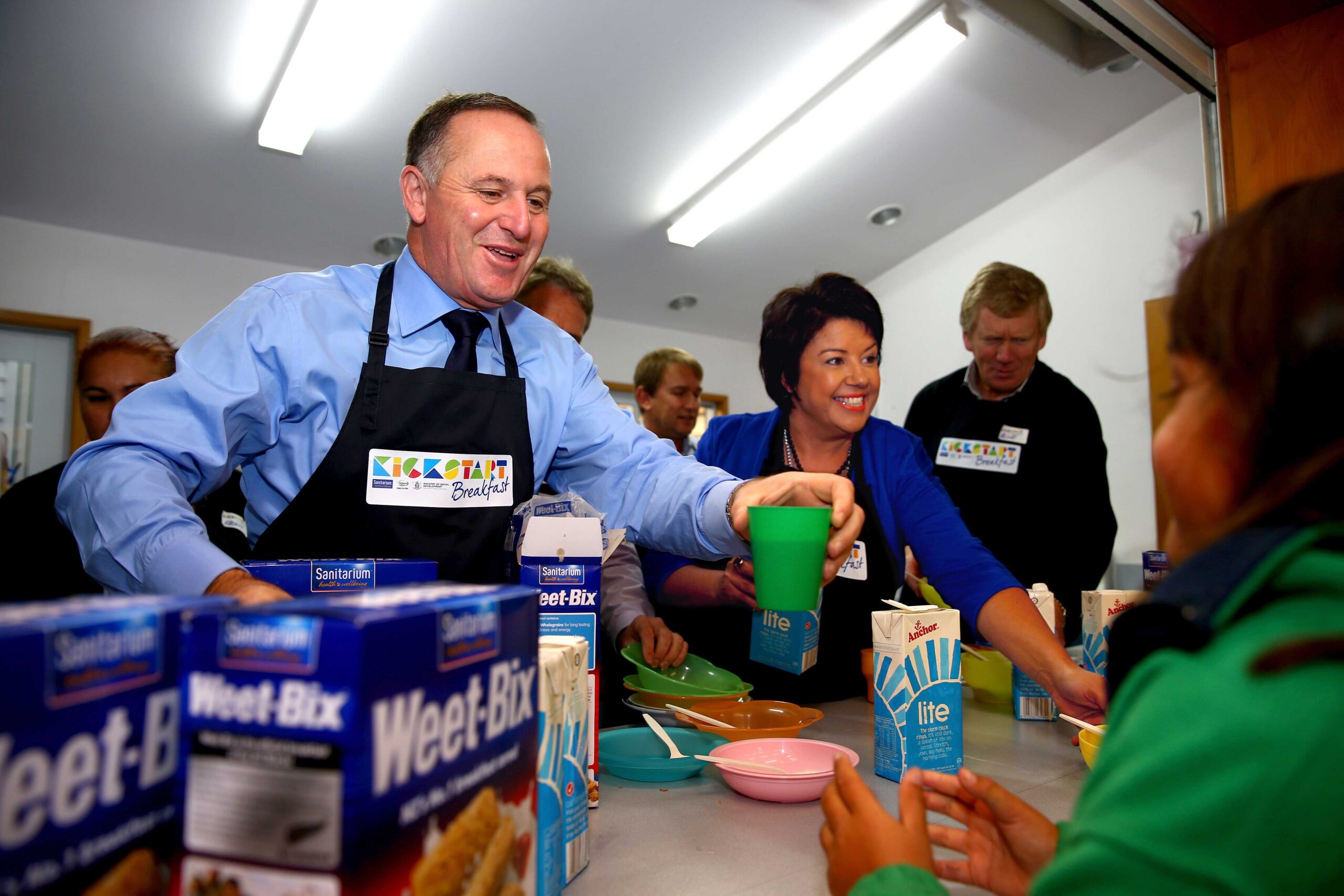
With former Prime Minister John Key, serving breakfast to school children in West Auckland.
Paula was terrified of going to university but she enrolled at Massey for a degree in social work, which quickly changed to a degree in social policy as she became interested in the mechanisms for change. She was active in student politics and soon harnessed her innate sense of justice to fight for a crèche on campus.
“It was so unfair – the boys were getting a bar built but there was nothing for a crèche.”
She got her crèche… And it gave her a feeling of power; it felt good. “I thought, ‘Wow, people listen to me. I can make change.'”
Her first political job was as an electorate agent for Murray McCully.
“We just gelled in all respects; we shared the same sense of humour. He taught me how to think. He challenged me to back my statements with evidence and present an argument well, to care about the details. He would really fight for his electorate. He taught me about respect for the people who vote for you. He would never tell me what to think. We had lots of differences but he loved that I had a view.”
He remains a close personal friend. It was McCully who persuaded her to stand for the party at the 2005 election. She stood in Waitakere and lost, but entered on the party list.
She would win the seat in the next two elections but hold it by the slimmest of margins. Paula now holds the new Upper Harbour seat, which she won by a sturdy 9500-odd votes.
John Key took perhaps the biggest punt on Paula Bennett, naming her Social Development Minister in his 2008 cabinet. He had faith in her and she has admitted feeling a real sense of loss over his departure from parliament.
She says she doesn’t find the Beehive daunting, admitting people are often surprised when they walk into caucus.
“People genuinely want you to do well because then the team does well. I try to organise a bit of moral support. I often set aside an hour for people to come and see me. I’ll lend an ear, share experience.”
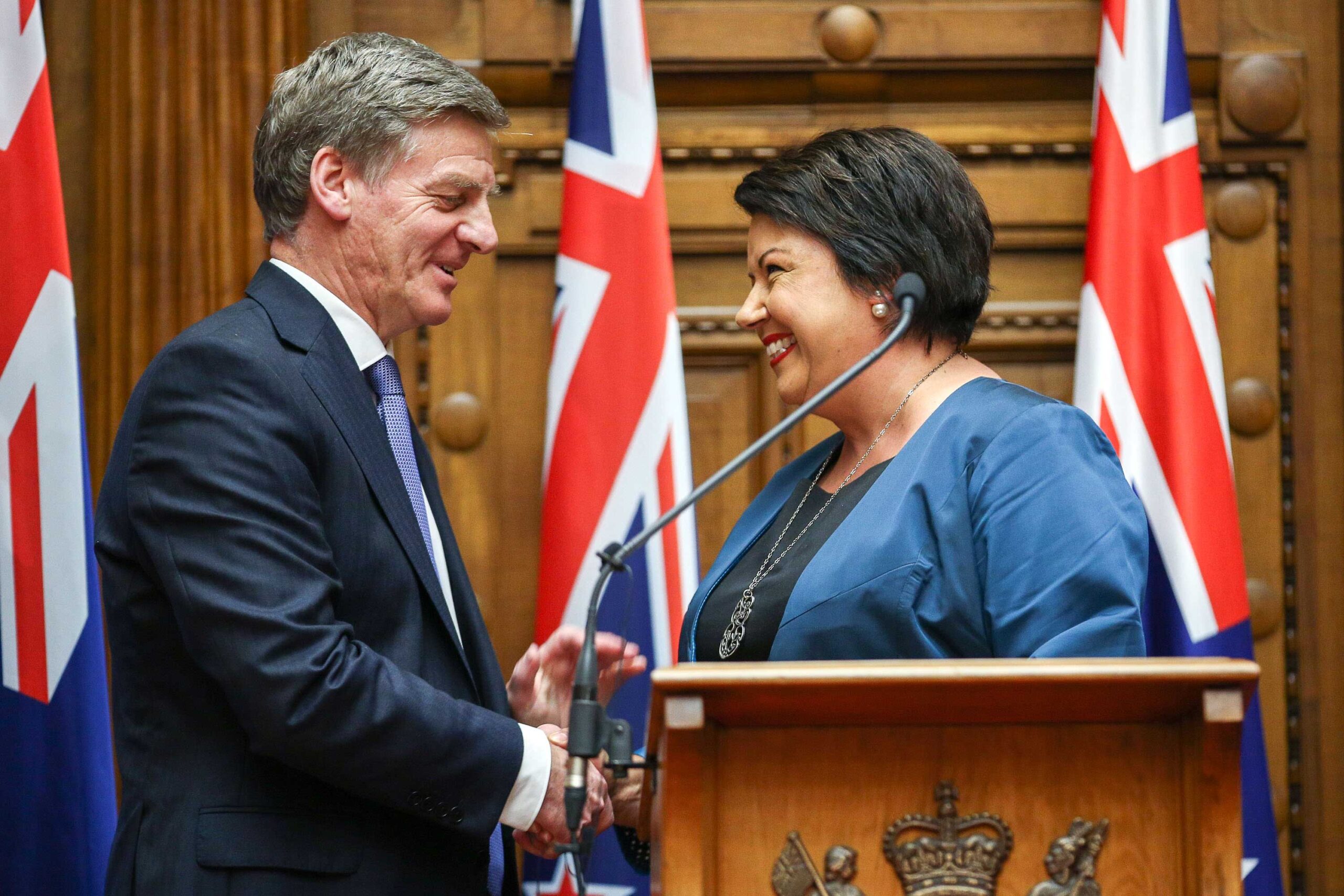
Prime Minister Bill English shakes hands with his deputy, Paula Bennett.
It was just before the 2011 election that she was sitting in a bar with a group of women friends having a wine. You get the sense that she enjoys her women friends enormously. The talk turned to relationships and someone asked Paula why she had never married.
“I’ve never met anyone I loved as much as Alan,” she told them.
And then what Paula calls a Sex in the City moment occurred. Her friends were galvanised into action and said they would track him down. They eventually found him in Australia. He was a solo dad with two children.
They rang Paula in a state of high excitement. “What shall we do?” they asked.
“How about telling him the truth?” said Paula.
Soon afterwards an email arrived from Alan. He felt the same.
“I can’t get you out of my head,” he wrote.
Paula asked him to wait three months until after the election. “My life runs by elections.”
Then she went to Melbourne. “The minute he opened the door there was this strong pull.” They married in 2012.
“I’m definitely a lot more settled. I feel incredibly lucky to have his kids in my life. I always wanted a big family.”
Now she has one. Her daughter Ana is married with three children and living close by, and her parents have moved to West Auckland as well.
When Paula became Deputy Prime Minister it was Alan who really understood how momentous it was. He knew her when she was 19, a struggling solo mum, waitressing in a truck stop.
Only he knew how far she’d come. “My big, staunchy, tattooed truck driver knew the 19-year-old me – the confused, frustrated, lacking confidence me,” she smiles. “He is a genuinely lovely man.”
And in the future? “I want to ride this alongside Bill for as long as I can. My mentor tells me I’m not allowed to think about [the future]. If you’re so busy thinking about what’s next, you’re not focused on your job.
“I definitely don’t want Bill’s job. I always make him text me the minute he’s back in the country to say, ‘Stand down.’ I’m always ready for handover.”
Paula often says how proud she is to be a Westie. What does it mean, I ask, to be a “Westie”?
She says simply, “It means you have a level of bluntness, a big dose of real. Genuinely no judgement. Westies take all of you.”
Sounds pretty much like Paula Bennett.
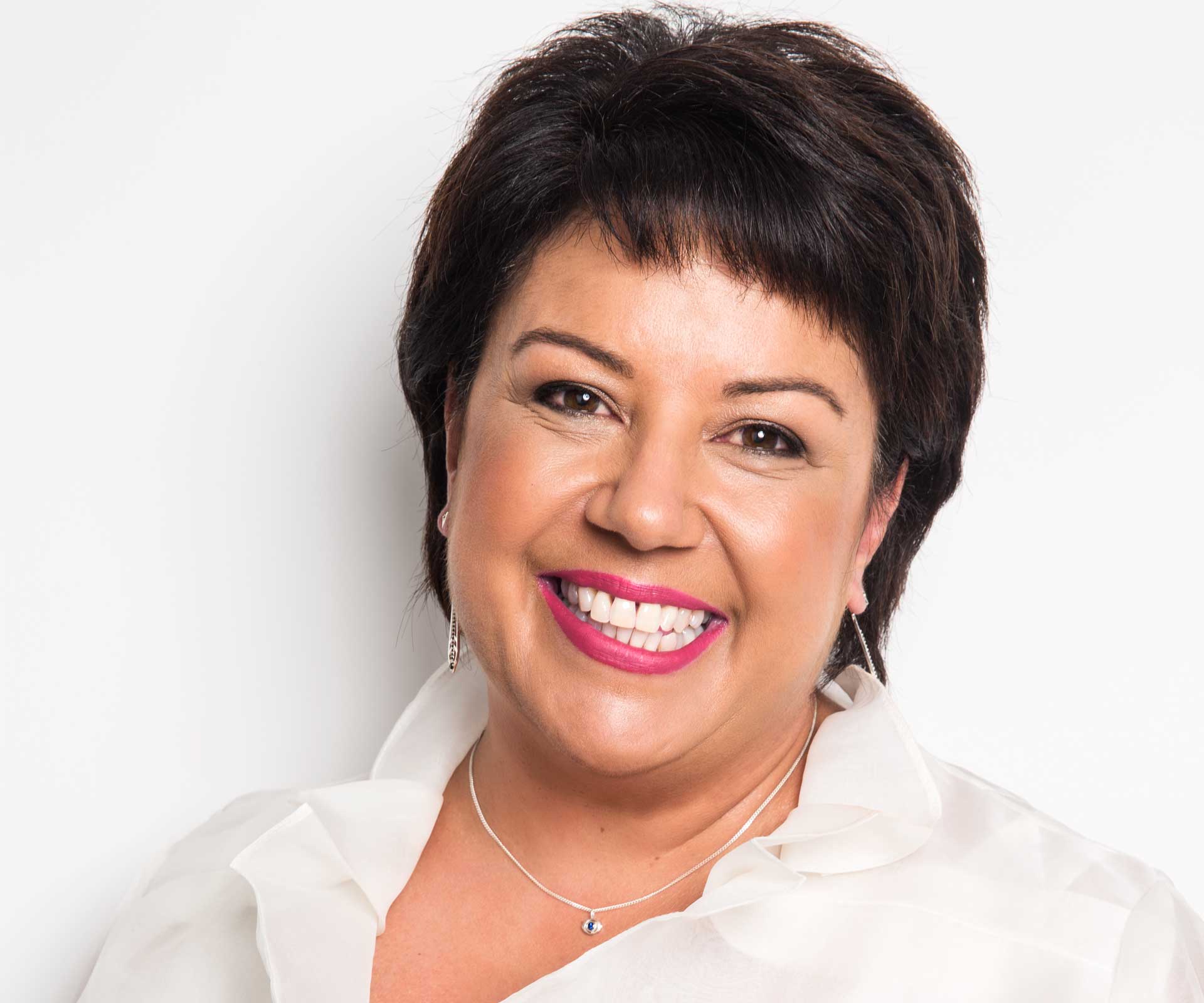
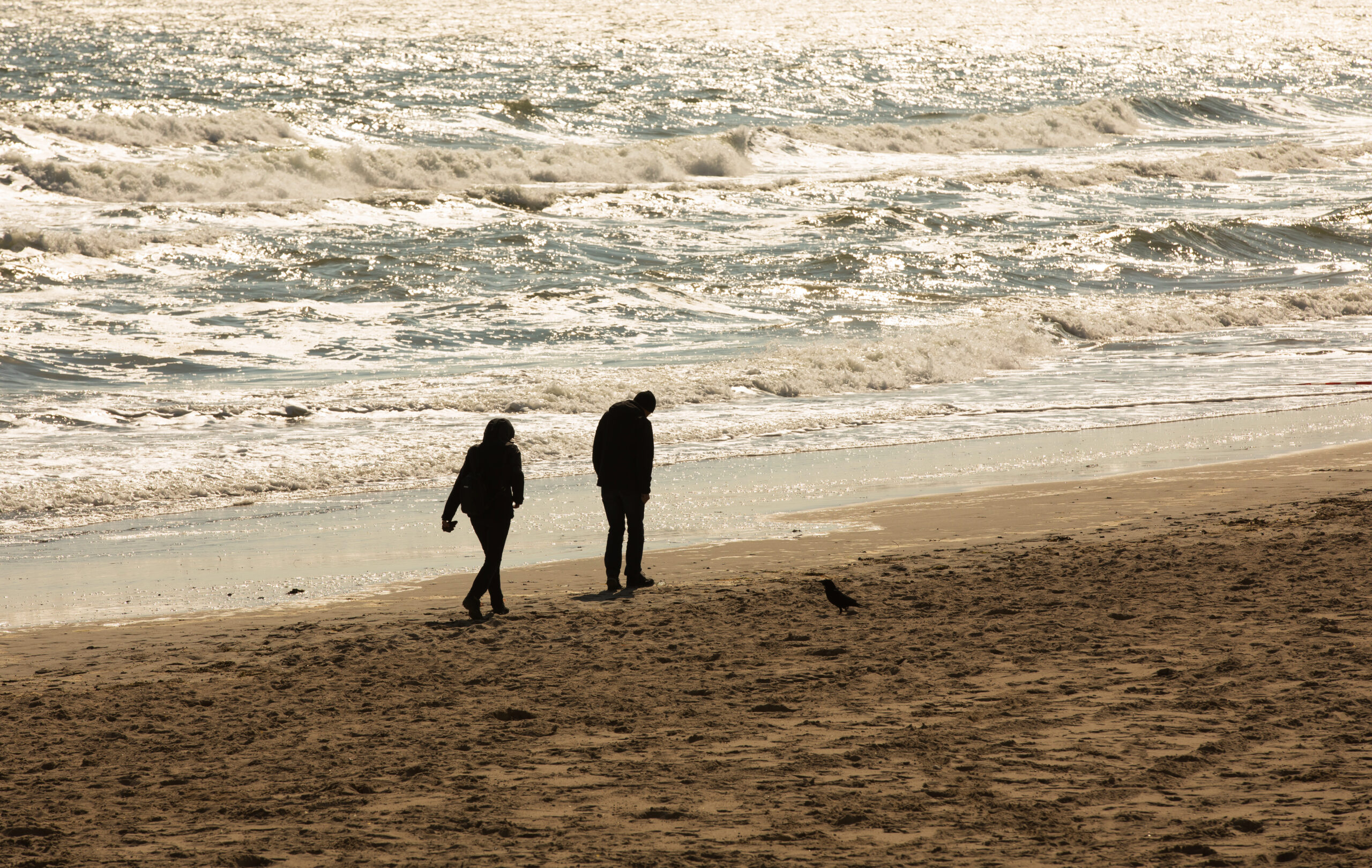
-scaled.jpg)